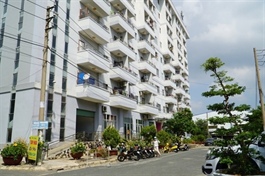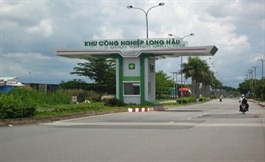Real estate developers voice issue with new loan conditions
Real estate developers voice issue with new loan conditions
Contents in a new circular to take effect in September have raised concerns from real estate developers over potential added difficulties for businesses to access loans.
Circular No.06/2023/TT-NHNN, which amends and supplements a number of articles of a 2016 circular that provided operations for loans from credit institutions and foreign bank branches to customers, has new regulations on restrictions on real estate lending.
Real estate developers voice issue with new loan conditions, illustration photo/ Source: freepik.com
From six cases which do not allow loans from banks, Circular 06 adds another three cases to the ban.
Banks are not allowed to lend money to pay for capital contribution, purchase or transfer contributed capital or shares of limited liability companies, partnerships, and joint-stock companies which are not yet listed on the stock market or not registered for trading.
Furthermore, banks are not allowed to lend money to pay for capital contributions under the capital contribution or investment cooperation contracts for implementing a project that is not eligible to be put into business under the current law at the time the credit institution decides to lend.
Thirdly, banks are not allowed to lend for financial compensation, unless the loan fully meets the conditions specified in this circular.
According to the State Bank of Vietnam (SBV), the circular aims to control the use of capital for the right purposes and reduce the risks of handling collateral.
“The contributing capital by buying shares or pouring into projects that do not meet legal requirements brings more difficult and high risk for controlling the use of the loan and banks will be unable to give a regular assessment of the lenders’ ability to give back the debt,” the SBV said in a statement.
Pham Duc Toan, general director of EZ Property, said that the additions will further tighten capital flow into the real estate market, especially that businesses which want to cooperate in investment must be a listed company on the stock exchange.
“The number of businesses operating on the stock exchange is minimal compared to the volume operating outside and unlisted,” said Toan, who added that the SBV should reconsider the changes.
Nguyen Quoc Hiep, chairman of the Vietnam Association of Construction Contractors, said that real estate development will promote other sectors to develop and vice versa. “The market is difficult due to weak absorption. It is familiar for enterprises to experience a lack of cash flow, a decrease in liquidity, or even a loss of liquidity. In that context, this tightening would be much more difficult for them,” Hiep said.
The financial results for the year so far of a number of real estate enterprises indicate the difficulties that the industry is facing.
Eximland lost an accumulation of $260,000 in the first half of the year, reducing its total asset value from $31.9 million to $31.2 million compared to the previous half.
The An Duong Thao Dien Real Estate Investment and Trade JSC achieved a turnover of $191,000 only in the second quarter of the year, reducing 59 per cent compared to the same period of last year.
Figures from the Housing and Real Estate Market Management Division under the Ministry of Construction said that in 2022, the number of real estate businesses declaring bankruptcy and dissolution increased by 38.7 per cent over the same period last year, hitting nearly 1,200 companies.






















